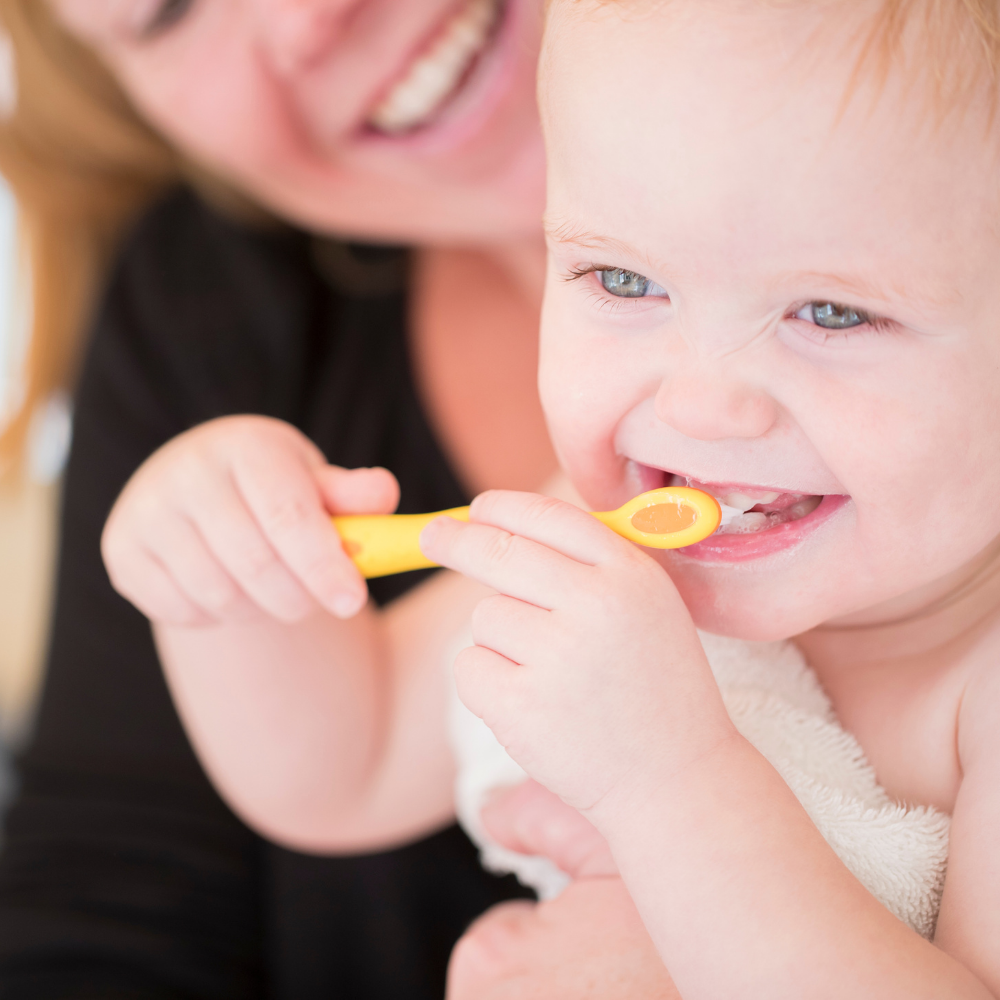FREE New Patient Special for Kids 3 and Under
Kids 3 and under without insurance can get a FREE new patient special that includes a dental exam and teeth cleaning.
Call 720-615-6087 today to take advantage of this special offer!
As a parent, you might wonder if baby teeth really deserve the same attention as permanent teeth. After all, they’re going to fall out eventually, right? Baby teeth matter far more than many parents realize. They’re not just temporary placeholders but essential components of your child’s health, development, and well-being. At Sprout & Bloom Pediatric Dentistry in Littleton, Colorado, Dr. Allison Davis and our team witness daily how proper care of primary teeth establishes the foundation for lifelong oral health success. In this comprehensive guide, we’ll explore the compelling evidence behind why baby teeth play such a crucial role in your child’s future.
Primary teeth, commonly called baby teeth, begin forming before birth and typically start erupting around six months of age. While it’s true that these teeth are temporary, their impact on your child’s health extends far beyond their relatively short lifespan of 6-12 years.
Baby teeth serve as natural space holders for permanent teeth. When a primary tooth is lost prematurely due to decay or trauma, the surrounding teeth can shift into that space, potentially causing crowding issues when permanent teeth try to emerge. This can lead to the need for more extensive orthodontic treatment later.
Baby teeth play an essential role in your child’s ability to eat a varied, nutritious diet. The front teeth help children bite into foods like apples and sandwiches, while the back molars are crucial for grinding and chewing. When baby teeth are painful or missing, children often avoid certain foods, particularly fruits and vegetables, which can impact their nutritional intake during critical developmental years.
Primary teeth are instrumental in helping children develop clear speech patterns. The tongue, lips, and teeth work together to produce specific sounds. Missing or damaged baby teeth can lead to speech difficulties, including lisping or trouble pronouncing certain letters like “s,” “th,” and “f.” While some speech issues may resolve as permanent teeth emerge, others can become habitual and require speech therapy.
A healthy, attractive smile boosts a child’s self-esteem and confidence. Children with dental problems may become self-conscious about their appearance, potentially affecting their willingness to participate in social activities, smile freely, or speak up in class. Maintaining healthy baby teeth helps ensure your child feels confident during these important formative years.
One of the most significant threats to baby teeth is early childhood caries, often called baby bottle tooth decay. This condition occurs when teeth are frequently exposed to sugary liquids, including milk, formula, fruit juice, or other sweetened beverages. The bacteria in the mouth feed on these sugars, producing acids that attack tooth enamel.
Many parents underestimate the importance of cleaning baby teeth, especially when only a few have emerged. However, bacteria can accumulate on teeth and gums from the moment the first tooth appears. Without proper cleaning, this bacteria forms plaque, which can lead to tooth decay and gum disease.
Children who frequently snack on sugary or starchy foods throughout the day face increased risk of tooth decay. Each time these foods are consumed, bacteria in the mouth produce acid attacks that last approximately 20 minutes. Multiple snacking sessions mean repeated acid attacks, giving teeth little time to recover.

Good oral health habits should begin before your baby’s first tooth erupts. Gently clean your infant’s gums with a soft, damp cloth after feeding to remove bacteria and residual milk or formula.
Once the first tooth appears, begin brushing twice daily with a soft-bristled, age-appropriate toothbrush and a rice-grain-sized amount of fluoride toothpaste. As more teeth emerge and your child reaches age three, increase to a pea-sized amount of toothpaste.
Creating positive associations with oral hygiene helps establish lifelong habits. Let your child pick out their toothbrush, play their favorite song during brushing time, or create a reward chart for consistent brushing. The key is making oral care a regular, enjoyable part of your child’s routine.
The American Academy of Pediatric Dentistry recommends that children visit a pediatric dentist by their first birthday or within six months of their first tooth erupting. These early visits allow Dr. Davis to monitor tooth development, identify potential problems early, and provide parents with personalized guidance on home care.
At Sprout & Bloom Pediatric Dentistry, we utilize advanced technology including 3D scanning and digital x-rays to provide more comfortable and accurate diagnoses. These tools help us detect problems in their earliest stages when treatment is typically less invasive and more successful.
Professional cleanings, fluoride treatments, and dental sealants can significantly reduce your child’s risk of developing cavities. These preventive measures are particularly important for baby teeth, which have thinner enamel than permanent teeth and are more susceptible to decay.
Despite best efforts, some children may develop cavities in their baby teeth. The good news is that Sprout & Bloom Pediatric Dentistry offers many treatment options designed specifically for young patients. From tooth-colored fillings to stainless steel crowns, treatments can restore function and protect the tooth until it naturally falls out.
Don’t wait until problems arise — give your child the gift of a healthy smile that will serve them well throughout their life. Call Sprout & Bloom Pediatric Dentistry today at (720)-706-9995 to schedule your child’s appointment and take the first step toward a lifetime of optimal oral health.